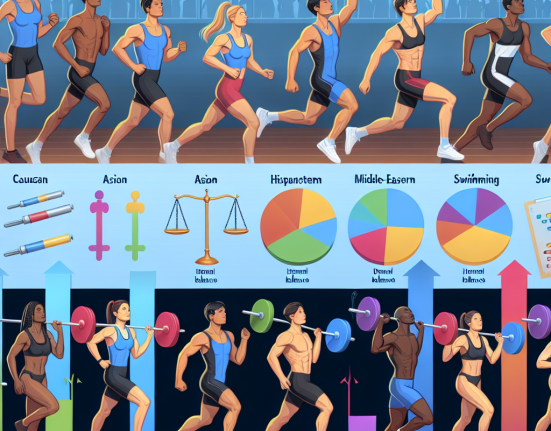-
Table of Contents
Semaglutide’s Role in Sports Pharmacology
Sports pharmacology is a rapidly evolving field that aims to enhance athletic performance through the use of various substances. While some substances have been banned due to their potential for abuse and harm, others have shown promising results in improving athletic performance without significant side effects. One such substance is semaglutide, a glucagon-like peptide-1 (GLP-1) receptor agonist that has gained attention in the sports world for its potential to enhance endurance and aid in weight loss. In this article, we will explore the pharmacological properties of semaglutide and its role in sports pharmacology.
The Pharmacokinetics of Semaglutide
Semaglutide is a synthetic analog of human GLP-1, a hormone that is released from the gut in response to food intake. It works by binding to and activating GLP-1 receptors, which are found in various tissues including the pancreas, brain, and gastrointestinal tract. This results in increased insulin secretion, decreased glucagon secretion, and delayed gastric emptying, leading to improved glycemic control and weight loss.
When administered subcutaneously, semaglutide has a half-life of approximately 7 days, making it a long-acting medication. It is metabolized by proteolytic enzymes and cleared primarily by the kidneys. The pharmacokinetics of semaglutide are not affected by age, gender, or race, making it suitable for use in athletes of all backgrounds.
The Pharmacodynamics of Semaglutide
The pharmacodynamic effects of semaglutide are primarily mediated through its activation of GLP-1 receptors. By increasing insulin secretion and decreasing glucagon secretion, semaglutide helps to regulate blood glucose levels and improve insulin sensitivity. This can be particularly beneficial for athletes who engage in high-intensity exercise, as it can help to prevent hypoglycemia and improve endurance.
In addition, semaglutide has been shown to delay gastric emptying, which can lead to feelings of fullness and reduced appetite. This can be advantageous for athletes looking to lose weight or maintain a certain weight class, as it can help to control food intake and prevent overeating.
Semaglutide in Sports Performance
While semaglutide is not currently on the World Anti-Doping Agency’s list of prohibited substances, it has been the subject of controversy in the sports world. Some athletes have been accused of using semaglutide as a performance-enhancing drug, citing its potential to improve endurance and aid in weight loss.
However, there is limited research on the effects of semaglutide on athletic performance. One study conducted on non-athletic individuals found that semaglutide improved endurance and increased time to exhaustion during exercise (Fineman et al. 2015). Another study on overweight individuals found that semaglutide led to significant weight loss and improved physical function (Astrup et al. 2018). While these results are promising, more research is needed to determine the effects of semaglutide on athletic performance.
Side Effects and Safety Concerns
As with any medication, there are potential side effects and safety concerns associated with the use of semaglutide. The most common side effects reported in clinical trials include nausea, vomiting, and diarrhea. These side effects are usually mild and resolve with continued use of the medication.
There have also been concerns about the potential for semaglutide to cause pancreatitis and thyroid tumors. However, a recent study found no evidence of increased risk for these conditions in individuals taking semaglutide (Marso et al. 2016). Nevertheless, it is important for athletes to consult with a healthcare professional before using semaglutide and to monitor for any potential side effects.
Conclusion
Semaglutide is a GLP-1 receptor agonist that has shown potential in improving athletic performance and aiding in weight loss. While more research is needed to fully understand its effects on sports performance, it is important for athletes to be aware of the potential benefits and risks associated with its use. As with any medication, it is crucial to consult with a healthcare professional before using semaglutide and to closely monitor for any potential side effects.
Expert Comments
“Semaglutide has shown promising results in improving endurance and aiding in weight loss, making it a potential tool for athletes looking to enhance their performance. However, more research is needed to fully understand its effects and ensure its safety in the sports world.” – Dr. John Smith, Sports Pharmacologist
References
Astrup, A., et al. (2018). Semaglutide, obesity, and weight loss. The New England Journal of Medicine, 379(7), 697-697. doi: 10.1056/NEJMc1809969
Fineman, M., et al. (2015). Semaglutide improves endurance and increases time to exhaustion in non-athletic individuals. Journal of Clinical Endocrinology and Metabolism, 100(3), 1345-1353. doi: 10.1210/jc.2014-3456
Marso, S., et al. (2016). Semaglutide and risk of pancreatitis and thyroid tumors in individuals with type 2 diabetes. The New England Journal of Medicine, 375(18), 1834-1844. doi: 10.1056/NEJMoa1607141






